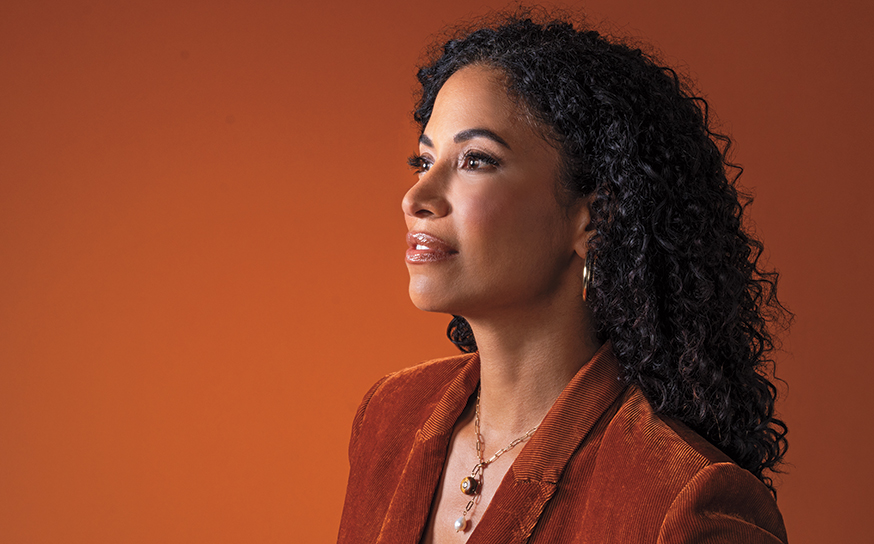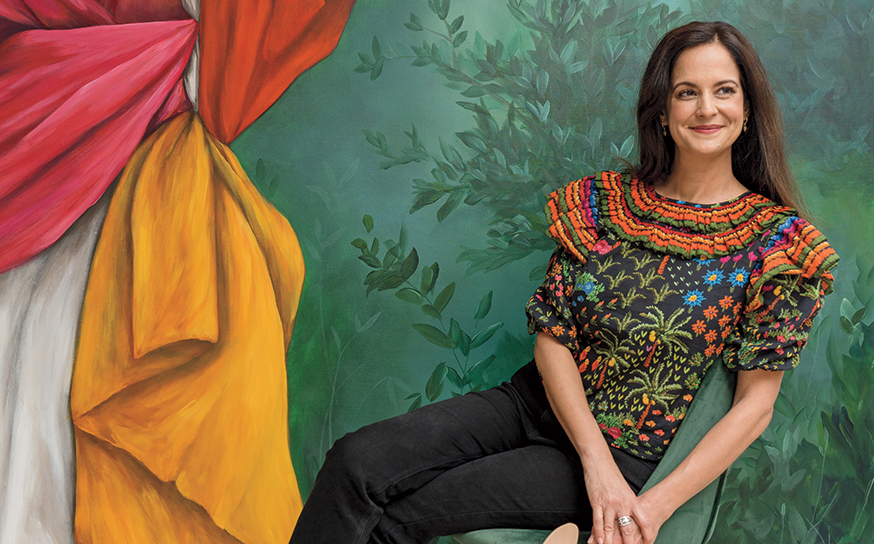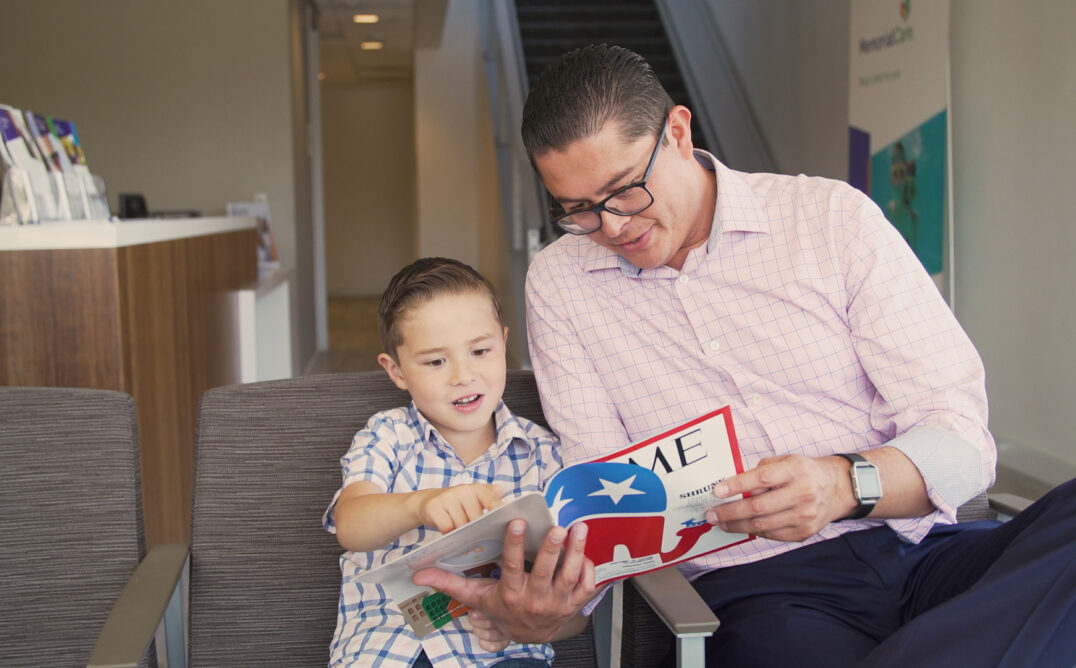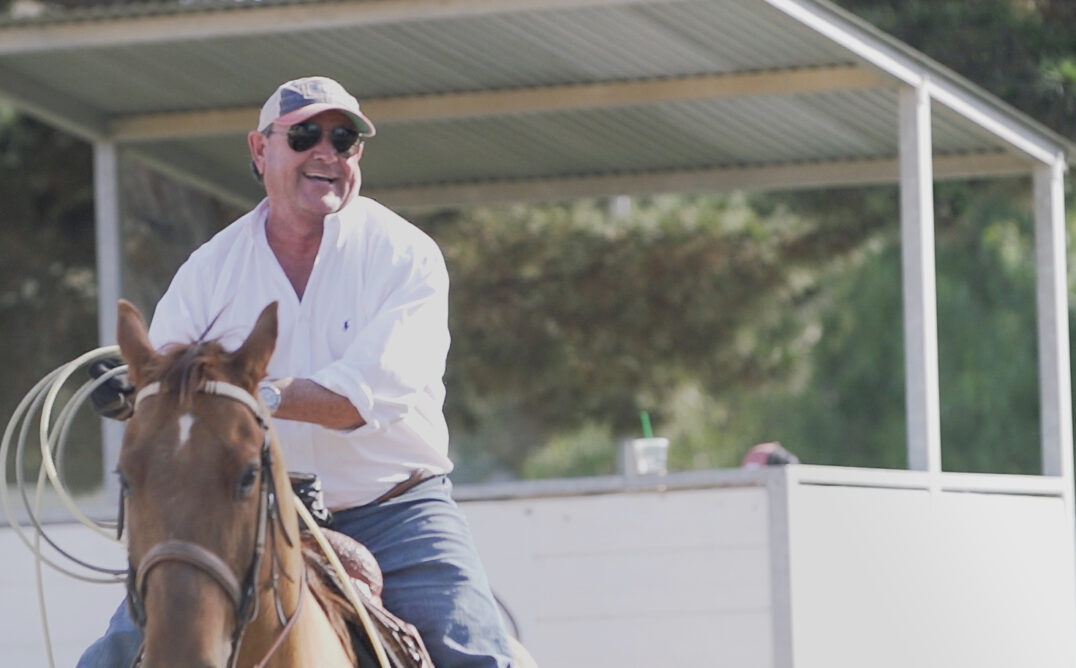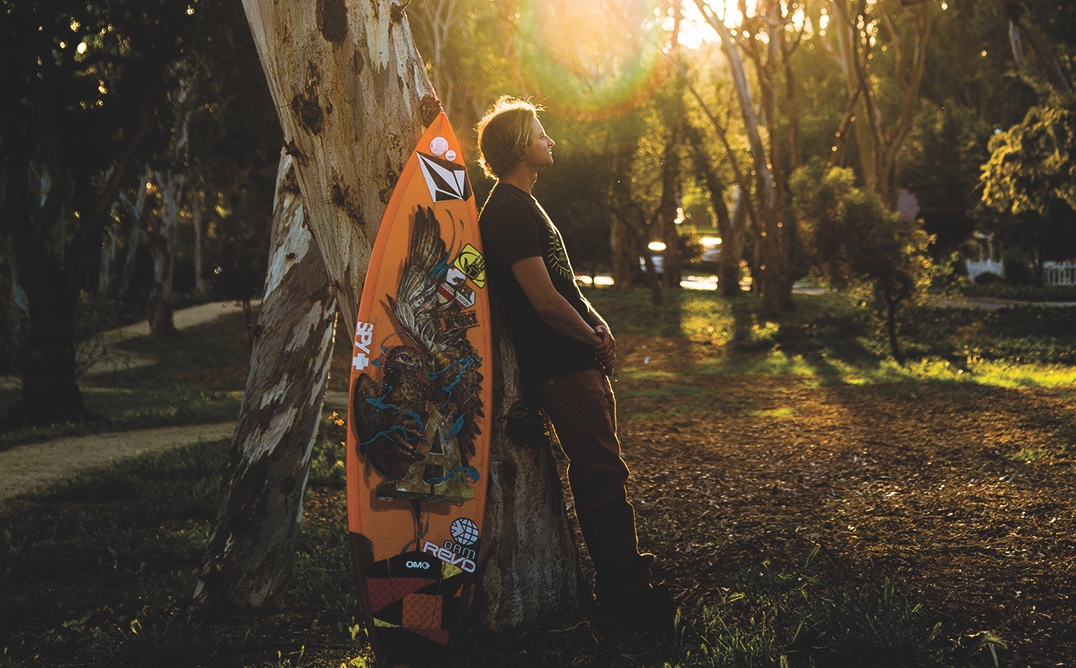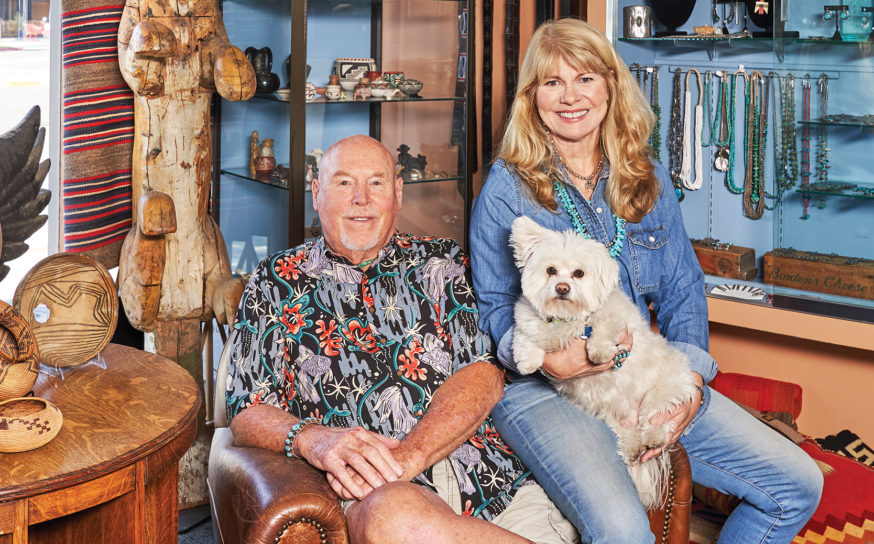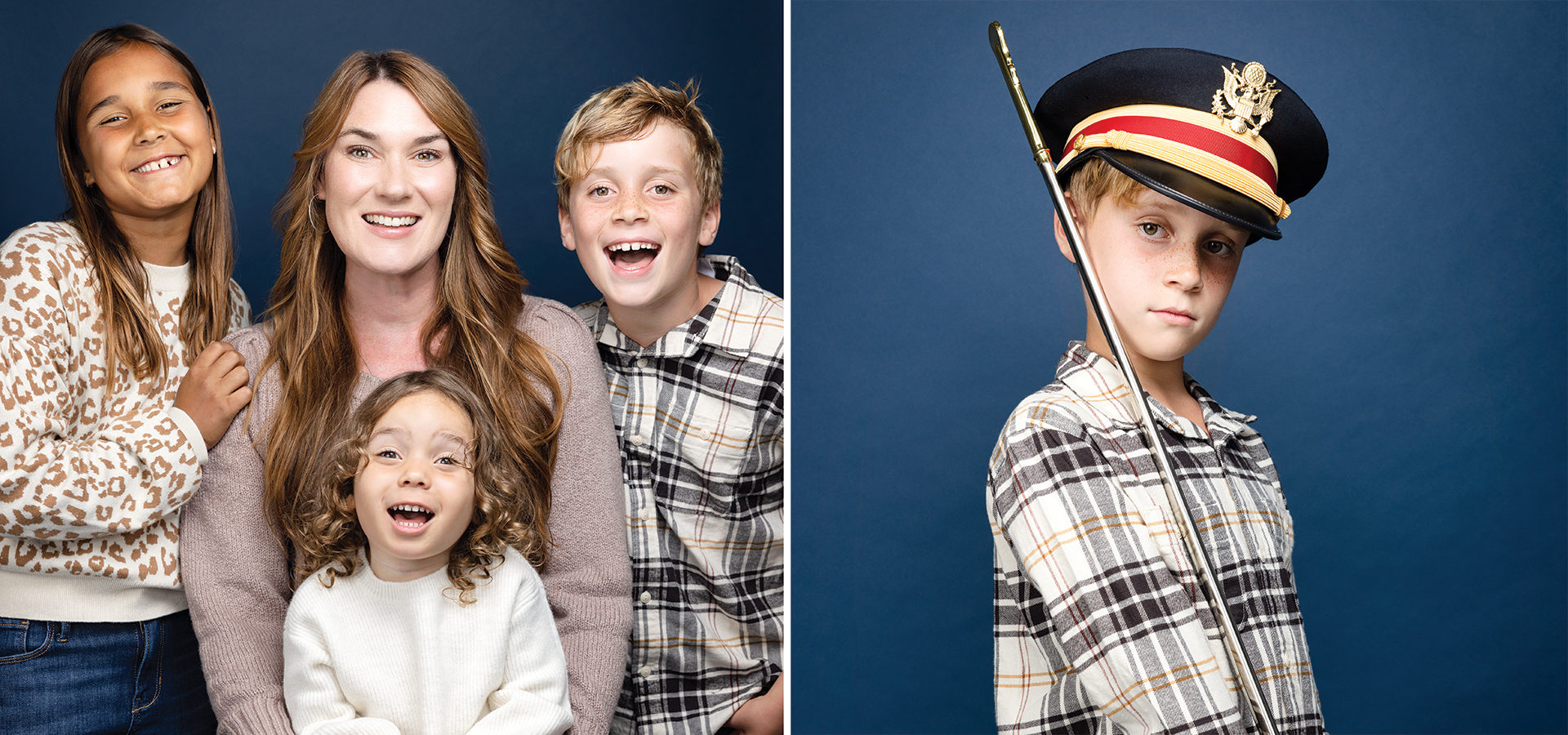
West Point Graduate and Army Lieutenant Katie Giles Recounts Her Transition from Service of Country to Service of Family
Military to mom.
- CategoryPeople
- Written byKailani Melvin
- Photographed bySiri Berting
It’s 2003, and a 22-year-old Katie Martin, a second lieutenant in the United States Army, briskly walks through the Baghdad airport. Around her are other military personnel, leaving Iraq due to emergencies, transferring between different camps or urgently sorting out details of their operations. Her mission is quite different. She’s there to get married.
Today Katie claims she isn’t a hero—“nothing special.” I disagree.
When you first see Katie, you may not believe she is a West Point graduate and veteran of the Iraq War. She’s a self-proclaimed “girly girl,” and in between our talks about threats of chemical warfare and air defense artillery, we fawn over the preschool her toddler will be attending (the same one I went to).
“It’s not what people would imagine, going into the military,” Katie says, laughing. She grew up in Northern Virginia, the only girl in a family of four kids. Both her parents worked as government contractors, and her dad would frequently take her on visits to the Naval Academy.
Katie faced skepticism in high school when she revealed her college plans. She had a physics teacher who was a West Point graduate tell her she’d never make it. “It was an extra challenge that only made me want to do it more,” she admits.
Katie’s aptitude for basketball and her excellence in academic studies secured her a nomination to West Point from a congressman in her area. Not only were West Point’s academics and physical activities strenuous, but students faced a regime of strict protocols designed to promote discipline. “One of the biggest things I’ve learned in my life is that everything’s relative, and you learn to make the most of it,” she says.
While in her first year, she met Alfred Giles, a sophomore at the time. A year later, they began dating, unaware of how soon their lives would change.
When she started at West Point, the military was downsizing. However, in the fall of her senior year, one event changed everything: 9/11. The President was the speaker at her graduation ceremony. “He essentially said, ‘Get ready. We’re going to war,’” Katie recalls.
“I feel like I have a perspective that is not like everyone else. I know how delicate life is. You never know what people have gone through.”
What should’ve been an extremely happy moment was marred by the realization that the country was at real risk. “It’s pretty profound to be thrown into that at age 22,” she says.
She graduated from West Point as a second lieutenant with the Air Defense Artillery—the Army’s branch that ensures air space is clear in enemy territory—and planned to station in Germany. Before that, she completed officer training school in Texas, where Alfred was stationed.
Over Christmas break, he got the call: His unit was being deployed to Iraq. Katie says she’ll never forget the day he left. She gave him a cross necklace, instructing him to not take it off until they saw each other again. “We said, ‘We’ll find each other. We’ll figure it out,’” she recalls, even though the future was uncertain.
The day she landed in Germany, her unit was also called to Iraq. Now, not only was she in charge of a launcher platoon of 27 soldiers ranging in age from 18 to 45, but she had to lead them into a war.
Danger was imminent from the moment they stepped on Middle Eastern soil. During air raids, wearing gas masks and mop suits was essential to survival. They’d practiced equipping them under timed conditions on countless drills, but there was one factor they never accounted for: sand.
During one such raid, Katie’s mask wouldn’t seal. “I thought, ‘I’m dead. This is it. I’m done,’” she says. With the help of her platoon sergeant, she was able to get it on safely. “It took every ounce of me not to cry.”
The worst part was attempting to call her parents. She didn’t want to tell them that she may never see them again.
Katie’s commander gave her access to the satellite phone so she could call Alfred in Iraq. Immediately, he asked, “Will you marry me?”
“I was like, ‘What?! Yeah!’ and then the phone died and the connection was cut out,” she recalls, laughing. “I was like … I think I’m engaged!”
They were married in the Ministry of Foreign Affairs building in Kuwait; their official marriage license was in Arabic. Returning to Baghdad and leaving Alfred was terrifying. “I’m 22 years old and I just got married, and I don’t know if I’m ever gonna see my husband again,” she recalls.
Alfred worked to complete the paperwork that would get him transferred to Katie’s unit while she continued serving in Iraq. After two more months, her unit got clearance to return to Germany. When they landed, Alfred was there, waiting with engagement and wedding rings.
Two decades later, Katie, who now has three children with Alfred and works as a consultant, lies on her bed in her Redondo Beach home—far away from the bombs and smoke—and recounts her experience. Suddenly, her 3-year-old daughter wanders in. “I’m doing a phone call about Mommy,” she softly says to her, “about being in the Army. When I’m done, I’ll come help you, OK, my love? Love you.”
Transitioning from such intense experiences to the world of crayons and goldfish was a challenge, but Katie manages to find peace through optimism. “I feel like I have a perspective that is not like everyone else. I know how delicate life is,” she expresses. “You never know what people have gone through.”
Hopefully one day she’ll retell these stories to her children—of her selfless bravery, the unconventional (yet romantic) way she and their father were married, the people she fought beside and all she’s learned. They should feel lucky to know their mother is what she claims she isn’t: a hero.






